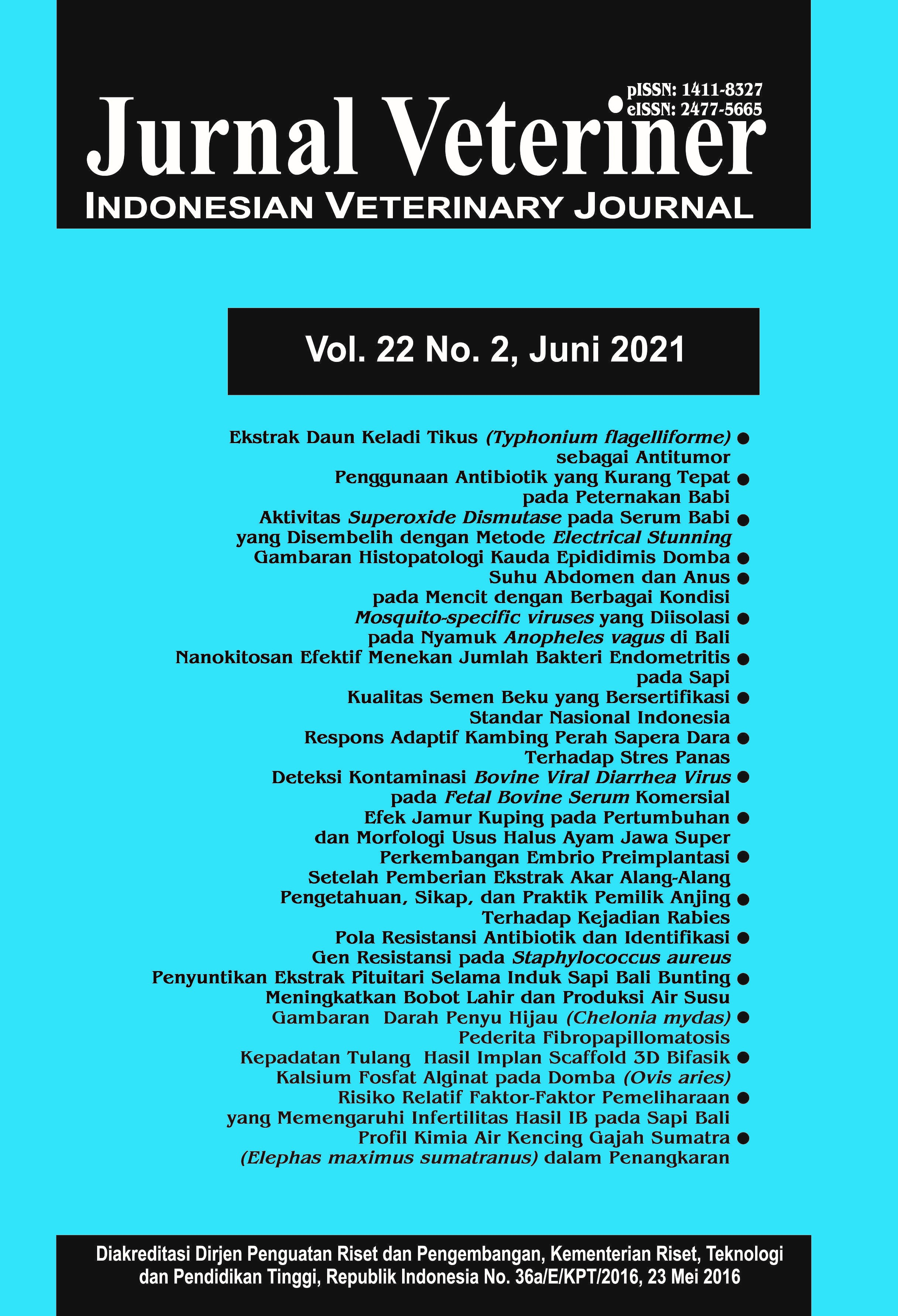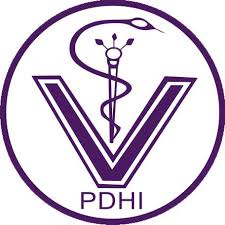Nanokitosan Efektif Menekan Jumlah Bakteri Gram Negatif dan Gram Positif Penyebab Endometritis pada Sapi Friesian Holstein secara In Vitro
NANOCITOSAN EFFECTIVELY SUPPRESSES BACTERIA GRAM NEGATIVE AND GRAM POSITIVE CAUSES OF ENDOMETRITIS IN FRIESIAN HOLSTEIN COW IN VITRO
Abstract
This study was conducted to isolate and identify the caused bacteria of endometritis in Frisian Holstein (FH) and assessed the effectiveness of nanochitosan against bacterial endometritis in vitro. Sample was collected from six FH cows with subclinical endometritis was examined by ultrasonography, then was calculated the number of colonies, isolation and identification of bacteria. Nanochitosan was calculated the protein content and made into neutral pH with concentrations of 0,5%, 1% and 2%. The results showed that the highest total plate count in the endometrial fluid was founded at number 626 with 4,7 ± 0,6 Log cells/mL and the lowest was found at number 532 with 3,3 ± 0,8 Log cells/mL. Bacteria in the Endometritis fluid was founded Gram-negative bacteria were Escherichia coli, Pseudomonas aeruginosa, and Klebsiella sp. Furthermore, Gram-positive bacteria were founded Staphylococcus aureus, Bacillus sp. and S. pyogenes. The challenge test of nanochitosan 1% and 2% with E. coli showed insignificant results when compared with positive controls (P>0,05). Nanochitosan with all concentrations can reduced number colonies of P. aeruginosa and Bacillus sp. significantly compared with negative controls (P<0,05). The challenge test of nano chitosan 0,5% and 2% were able to reduced the number of S. aureus and Klebsiella sp. colonies but could not reduce of S. pyogenes. These findings showed treatment of nanochitosan as an antibacterial is able to reduce the number of E. coli, Klebsiella sp. and P. aeruginosa and Bacillus sp. and S. aureus



















